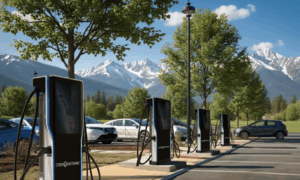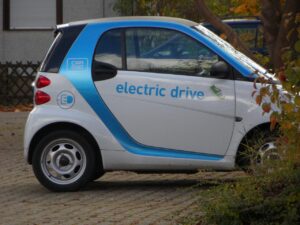
Home / EV Charging News / The Impact of Electric Cars on the Auto Repair Industry: Discussing how the transition to electric vehicles may affect the auto repair industry, including changes in maintenance and repair services
With the increasing popularity of electric cars, the automotive industry is undergoing a significant transformation. The transition from traditional gasoline-powered vehicles to electric vehicles (EVs) brings about various changes, not only in terms of the vehicles themselves but also in the auto repair industry. In this article, we will discuss the impact of electric cars on the auto repair industry, focusing on the changes in maintenance and repair services that arise with the rise of EVs.
Electric cars have gained significant traction in recent years due to their environmental benefits and technological advancements. Governments, manufacturers, and consumers are increasingly prioritizing sustainability and moving towards cleaner transportation alternatives.
Electric vehicles differ from traditional gasoline-powered vehicles in several key aspects. Instead of internal combustion engines, EVs rely on electric motors powered by rechargeable batteries. This fundamental difference has implications for maintenance and repair requirements.
Electric cars have simpler drivetrains compared to their gasoline counterparts. They require less maintenance because they have fewer moving parts and no oil changes. However, EVs have unique components, such as batteries, inverters, and charging systems, that require specialized attention.
One significant impact of electric cars on the auto repair industry is the reduced need for routine maintenance. Since electric vehicles lack many of the components found in gasoline-powered vehicles, traditional services like oil changes, spark plug replacements, and transmission repairs become obsolete.
As the auto industry shifts towards electric vehicles, auto technicians need to acquire new skills and knowledge to cater to the changing landscape. They must undergo training programs to understand the intricacies of electric vehicle technology, including battery systems, regenerative braking, and advanced diagnostics.
While the rise of electric cars may disrupt certain aspects of the auto repair industry, it also presents new opportunities. Repair shops can specialize in electric vehicle servicing and gain a competitive advantage. Technicians with expertise in EV repair can find increased job prospects and potentially higher wages.
As electric vehicles become more prevalent, the need for an extensive charging infrastructure grows. This infrastructure requires installation, maintenance, and repair, creating additional avenues for the auto repair industry. Repair shops can offer services related to charging stations and support the growth of electric vehicle adoption.
One of the primary motivations behind the transition to electric vehicles is their positive impact on the environment. EVs produce zero tailpipe emissions and contribute to reducing greenhouse gas emissions. The auto repair industry can align with this sustainability drive by promoting electric vehicle adoption andincorporating eco-friendly practices in their repair and maintenance services.
While electric cars bring about many benefits, they also pose challenges for the auto repair industry. The specialized knowledge and equipment required to repair electric vehicles may be costly to acquire and maintain. Repair shops need to invest in training and upgrading their facilities to accommodate EVs.
The shift to electric cars may lead to job losses in certain sectors of the auto repair industry. Technicians who specialize in traditional gasoline-powered vehicles may need to adapt their skills to work on electric vehicles or pursue retraining opportunities. However, with the growth of EVs, new job roles will emerge, creating a need for skilled technicians in electric vehicle repair.
To meet the demand for electric vehicle repairs, training and education programs need to be developed and expanded. This includes comprehensive courses on electric vehicle technology, safety protocols, and diagnostic procedures. Collaboration between manufacturers, educational institutions, and the auto repair industry is crucial in providing adequate training opportunities.
To ensure efficient repairs and maintenance of electric vehicles, collaboration between manufacturers and repair shops becomes essential. Manufacturers can provide repair manuals, technical support, and access to specialized tools and equipment. Repair shops can contribute by sharing their practical insights and challenges faced during EV repairs.
Technology plays a significant role in the repair and maintenance of electric vehicles. Advanced diagnostic tools and software are necessary to identify and resolve issues with electric drivetrains, battery systems, and control units. Repair shops need to stay updated with the latest technological advancements to provide effective and efficient services.
Governments worldwide are introducing initiatives and incentives to promote electric vehicle adoption. These include tax credits, subsidies, and infrastructure development. Repair shops can benefit from such initiatives by aligning their services with government goals and accessing funding for training and equipment upgrades.
The rise of electric cars is revolutionizing the auto repair industry. While it brings challenges and the need for adaptation, it also presents new opportunities. Repair shops and technicians must embrace the shift towards electric vehicles, invest in training and technology, and collaborate with manufacturers and governments to thrive in this evolving landscape.



